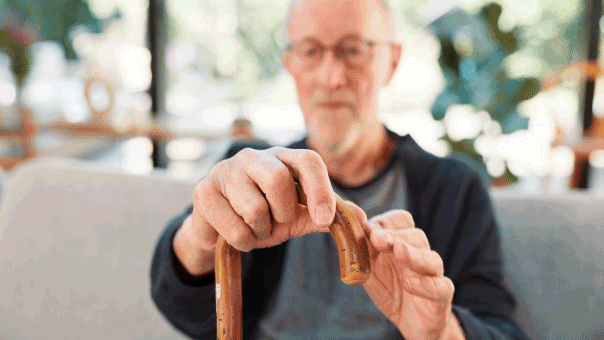
Senior man talking on his mobile phone (iStock)
Is your voice making you seem old?
Just like every other part of the body, the voice ages. It can become softer and scratchier. It can waver and simply conk out after a few hours of speaking. Men’s pitch tends to rise, while women’s tends to get lower.
Age-related voice problems can begin as early as age 50. Changes in the respiratory system can mean less air to power the voice. And to make strong and stable sounds, the two vocal cords—which are made up of tiny, precise bits of muscle, ligament and mucous membrane—need to touch and vibrate.
But as people get older, they lose muscle mass in the voice box (or larynx), just as they do elsewhere. The vocal cords (what doctors call vocal folds) lose volume and strength. The mucous membranes on the vocal cords stiffen and get thinner. These changes can cause the vocal cords to bow, leaving too much space between them.
“It is like working with a leaky valve,” says Stacey Halum, a research professor at Purdue University and director of the Voice Clinic of Indiana. “Patients complain that they have to use a lot of effort to get loud enough.”








































